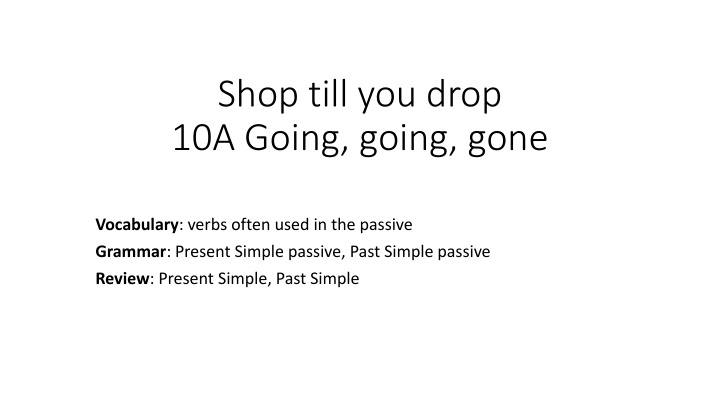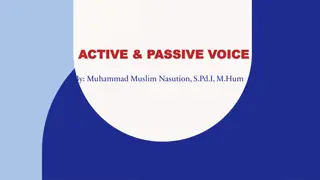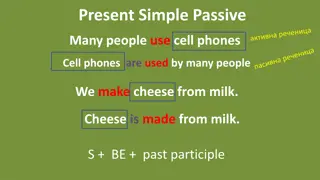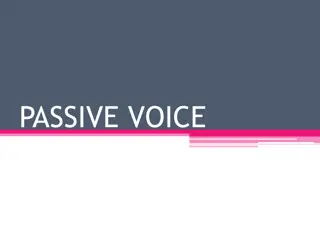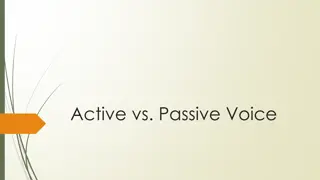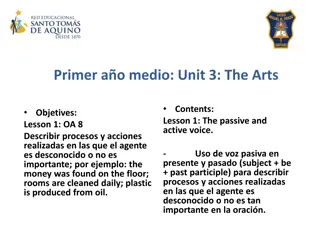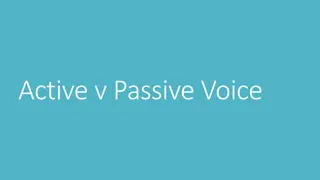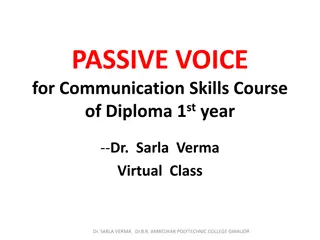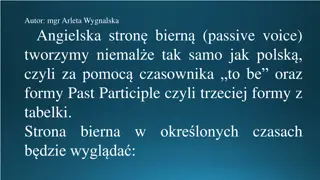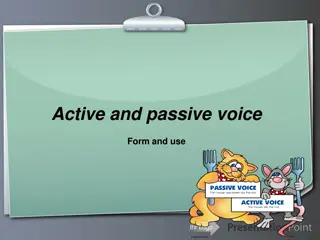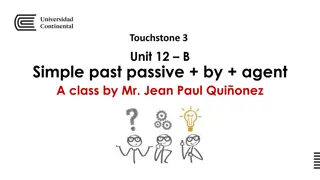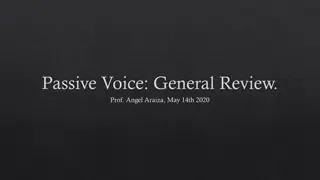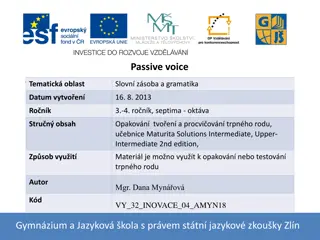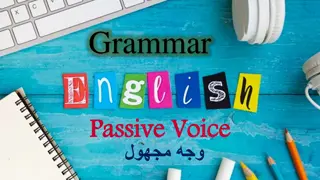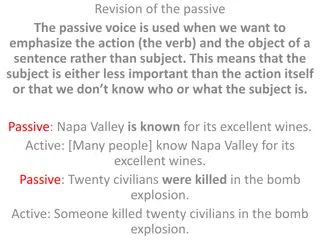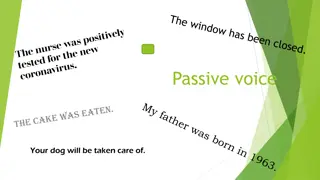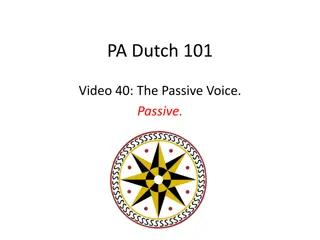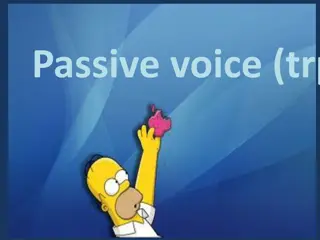Mastering Passive Voice: Verb Forms and Usage
Delve into the intricacies of passive voice in English grammar, exploring verb forms commonly used in the passive voice such as manufacturing, publishing, and more. Learn how to construct passive sentences in Present Simple and Past Simple tenses with examples and practice exercises. Enhance your understanding of when to use the passive voice and sharpen your skills through engaging exercises and vocabulary building.
Download Presentation

Please find below an Image/Link to download the presentation.
The content on the website is provided AS IS for your information and personal use only. It may not be sold, licensed, or shared on other websites without obtaining consent from the author.If you encounter any issues during the download, it is possible that the publisher has removed the file from their server.
You are allowed to download the files provided on this website for personal or commercial use, subject to the condition that they are used lawfully. All files are the property of their respective owners.
The content on the website is provided AS IS for your information and personal use only. It may not be sold, licensed, or shared on other websites without obtaining consent from the author.
E N D
Presentation Transcript
Shop till you drop 10A Going, going, gone Vocabulary: verbs often used in the passive Grammar: Present Simple passive, Past Simple passive Review: Present Simple, Past Simple
The memorabilia business Please, open your books, p. 72 and do exercise 1 (answer the questions) Now, read the text The memorabilia business Below, you can find help with new vocabulary Memorabilia objects kept or collected because of their historical interest, especially those associated with memorable people or events. Record-breaking surpassing a record or best-ever achievement. Auction - a public sale in which goods or property are sold to the highest bidder Valuable a thing that is of great worth, especially a small item of personal property After that try to answer the questions in exercise 2/3, p.76/76
Verbs often used in the passive Manufacture (cars) Publish (newspapers, magazines, books, etc.) Invent (machines) Paint (pictures) Write (books, plays, etc.) Grow (crops rice, cotton, etc.) Direct (films) Build (houses) Make (products phones, shoes, etc.)
Passive Voice (Present Simple and Past Simple) In English the main topic comes at the beginning of the sentence ACTIVE: Ian Fleming used this machine. subject verb object subject verb by + agent PASSIVE: This machine was used by Ian Fleming. In the active sentence we are more interested in Ian Fleming so we make him the subject. In the passive sentence we are more interested in the typewriter so we make it the subject.
We often use the passive when we are more interested in what happened to someone ot something than who did the action: In passive sentences we can use by to say who or what did the action To make the Present Simple passive we use: subject + am/is/are + past participle To make the Past Simple passive we use: subject + was/were + past participle QUESTIONS: Question word + auxiliary (am/is/are/was/were) + subject + past participle Where is rice grown? Where are Audi cars made? How much was the Picasso painting sold for? Who werw Elvis s hair cuttings sold by?
Now, lets practice Passive Voice. Could you please, do exercise 7/8/9, p. 77, Student s book, and exercise 1/2/3/4, lesson 10A, Workbook. Please, watch the video tutorial from the link below: https://www.youtube.com/watch?v=Y0ZbGVZLvKw Thank you for your attention! #Stay positive! #Stay healthy! #Stay home! Lecturer Ivana Mila i ivana.milacic@udg.edu.me
